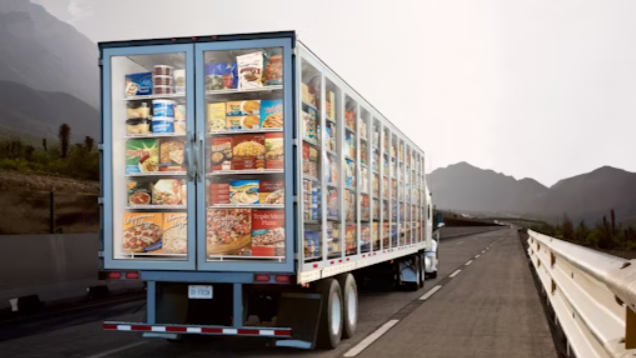Precision in Transit: How Cold Chain Logistics Became the Backbone of Modern Healthcare

By Eva Richardson – The Logistic News
In an industry where every second counts and every degree matters, cold chain logistics has emerged from the shadows of the supply chain to become a frontline component of modern healthcare. What was once a highly specialized field is now indispensable, as pharmaceutical companies increasingly turn to biologic and patient-specific therapies that demand temperature stability from end to end.
It’s no longer just about delivery. It’s about preservation—of product, of protocol, and of patient trust.
Therapies That Travel on Ice
Biologics, vaccines, and gene therapies are redefining the way diseases are treated. They’re also redefining how treatments are shipped. These products often require storage at temperatures as low as -80°C, with no margin for error.
“You can’t improvise with these products,” says Laura Meunier, head of transport compliance at a Paris-based pharma company. “Once you break the cold chain, there’s no recovery. That dose is gone.”
For logistics professionals, that means orchestrating transport systems where temperature, timing, and traceability are fully aligned—without exception.
More Warehouses, More Questions
Global demand has triggered a wave of investment. New cold storage hubs are opening near major pharmaceutical manufacturing centers, and last-mile delivery networks are being adapted to accommodate ultra-cold packaging and real-time tracking.
Yet the expansion isn’t uniform. In Africa, Southeast Asia, and parts of Latin America, infrastructure remains inconsistent. Refrigeration is vulnerable to power outages, and storage facilities may not meet international standards. Even in wealthier markets, surging demand has outpaced certification and staff training.
“Infrastructure without compliance is just a building,” notes Meunier. “It’s the process that makes the cold chain work—not just the hardware.”
Technology That Sees Everything
From sensor-embedded packaging to cloud-based dashboards, technology is playing a growing role in protecting temperature-sensitive cargo. If a shipment deviates even slightly from its required range, alerts are triggered instantly. Some platforms even allow operators to adjust conditions mid-transit based on predictive risk analysis.
But these tools aren’t just about control—they’re about transparency. For clients handling million-dollar therapies, documentation is no longer a formality. It’s part of the product itself.
The Regulatory Curve Keeps Rising
Governments and regulatory bodies have stepped up enforcement. Both the U.S. FDA and the European Medicines Agency are now conducting unannounced audits focused solely on cold chain compliance. In response, many logistics companies are redesigning their standard operating procedures from scratch—building in redundancies, backups, and real-time intervention protocols.
“GDP compliance used to be a checklist,” says Meunier. “Now it’s an expectation embedded into every movement.”
Conclusion
Cold chain logistics is no longer a side discipline. It’s a central artery in the global distribution of health. As therapies become more delicate and more valuable, the margin for logistical error narrows to zero.
What once seemed like a technical challenge is now a strategic one. And in this race, the companies that win won’t just be the fastest—but the most precise.
The post Precision in Transit: How Cold Chain Logistics Became the Backbone of Modern Healthcare appeared first on The Logistic News.
Share this post
Related
Posts
Finland warns of probable attempts to sabotage underwater infrastructure
Finland is raising its voice on a subject that has become critical for Europe: the vulnerability of cables, telecom links,...
Exports are still progressing, but the decline toward the United States is worrying
Japan records a fourth consecutive month of export growth, driven by solid demand in certain technological segments. But behind this...
The value of engines boosts teardowns and strains the freighter chain.
Engines are sometimes worth more than the plane: “teardowns” are accelerating and the freighter conversion chain is tightening Context: Engines...
Data becomes the strategic weapon of shipping in 2026
The digital transformation of the maritime sector is reaching a turning point: by 2026, data will no longer be a...




